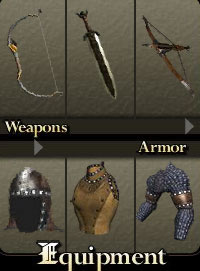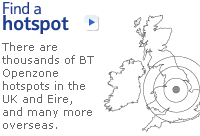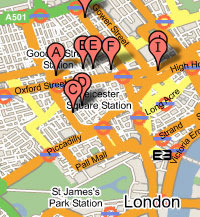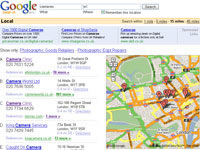 In an astonishing volte-face, Sony Online Entertainment (SOE) has announced that it now endorses the auctioning of virtual items from its massively popular online game, Everquest II – with the electronics giant pocketing a cut of the cash, naturally.
In an astonishing volte-face, Sony Online Entertainment (SOE) has announced that it now endorses the auctioning of virtual items from its massively popular online game, Everquest II – with the electronics giant pocketing a cut of the cash, naturally.
From late June 2005, Sony’s Station Exchange will provide an “Online Entertainment auction service” enabling players to buy and sell virtual items for real money.
Sony is introducing the service in an attempt to put a halt to ‘plat farmers’. These are dastardly rotters who use macros and bots to harvest rare items in games, level up characters, gain virtual money – and then flog them off on eBay.
 Personally, we’d rather buy a round of lovely real ale than shell out for the Dark Lord of Deltronia’s Mystical Turbo Sword of Mwegneli, but as we’ve reported before (Sales in Virtual Goods Surpasses $100m, Nov 2004), considerable sums of money are changing hands for virtual items.
Personally, we’d rather buy a round of lovely real ale than shell out for the Dark Lord of Deltronia’s Mystical Turbo Sword of Mwegneli, but as we’ve reported before (Sales in Virtual Goods Surpasses $100m, Nov 2004), considerable sums of money are changing hands for virtual items.
SOE director John Smedley has estimated that the market for virtual items is upwards of US$200m (€153m/£104) worldwide and the Station Exchange looks to be an attempt to grab a fat slice of this juicy pie.
So far, Sony have said that the Station Exchange system will only be available on dedicated new servers and that players will be able to transfer to an exchange server but not from one.
Naturally, gaming bulletin boards have been buzzing with debate about this development, with some expressing concerns that the ability for a rich user to “buy” success in a game effectively creates a ‘class’ divide.
‘Miss Minnie’ voiced her doubts on the urban75 gaming forum:
 “There already is a ‘virtual class system’ within the game itself – you earn status and faction standing, money, prestige, titles, fancy clothes and transport, you start living in a hovel but can move on up to luxury apartments etc – But at least till now you could assume that most people had ‘earned’ those things by playing the game.
“There already is a ‘virtual class system’ within the game itself – you earn status and faction standing, money, prestige, titles, fancy clothes and transport, you start living in a hovel but can move on up to luxury apartments etc – But at least till now you could assume that most people had ‘earned’ those things by playing the game.
Now you won’t be sure if someone is a player or a buyer, so I suppose it could be said that touches of real-life’s ‘class system’ will be impinging.
In my opinion, that is the biggest shame – these games are supposed to be fantasy worlds and now real-life threatens to intrude.”
‘Private Storm’, on the same board, was more pragmatic:
“Trading of in-game items etc goes on and it is extremely difficult to stop it.”
 “I’m not sure of the mechanics in EQII, but in WoW (World of Warcraft) they have mitigated the potential for selling items somewhat by introducing the concept of having things bind to that character when it is picked up, meaning you can’t transfer items to other players, hence no selling though eBay and the like.”
“I’m not sure of the mechanics in EQII, but in WoW (World of Warcraft) they have mitigated the potential for selling items somewhat by introducing the concept of having things bind to that character when it is picked up, meaning you can’t transfer items to other players, hence no selling though eBay and the like.”
“I think Sony has said in their press release that they can’t ignore the fact that the selling of stuff goes on and that a lot of the support they have to give players is to do with this, so they’re creating controlled systems for it to happen. Virtual ‘harm reduction’ as it were.”
“People approach these types of game with different playing styles and with different things they want to get out of it. Such games often require a large amount of time and dedication to actually see any significant progression and not everyone has the time to realise this progress. If you are a cash rich, but time poor player, but still want to play the game, buying items etc to help you get the most out of your time online doesn’t seem so bad.”
“On the other hand, there are players that are time rich, but cash poor who can achieve a large amount of success within the game simply ‘cos they have the time to do so. They’ve invested a large amount of time and money in playing the game and obviously feel that they should be able to benefit in the real world from this. Selling the stuff they acquire seems reasonable in this context.”
 For some gamers, an officially sanctioned auction site is an inevitable consequence of the growing popularity of virtual gaming, with Sony’s cut, a reasonable price to pay for eliminating a lot of scams.
For some gamers, an officially sanctioned auction site is an inevitable consequence of the growing popularity of virtual gaming, with Sony’s cut, a reasonable price to pay for eliminating a lot of scams.
If Station Exchange is successful, it may only be a matter of time before other auctions are permitted for SOE’s other games like Everquest I and Star Wars Galaxies.
Perhaps an official virtual auction site might prevent further tragedies like this story we covered last month: Legend of Mir 3 Gamer Killed After Selling Virtual Sword
Sony Station Exchange
urban75 bulletin boards
 In a quest to blast their already soaring profits further up into the stratosphere, Google will test a cost-per-impression bidding model for AdWords ads, letting advertisers specify groups of sites or specific sites in Google’s ad network.
In a quest to blast their already soaring profits further up into the stratosphere, Google will test a cost-per-impression bidding model for AdWords ads, letting advertisers specify groups of sites or specific sites in Google’s ad network. Google has, however, promised limitations on the animated advertising fluff that can appear on their adverts, with blinking ads that continuously loop already declared verboten.
Google has, however, promised limitations on the animated advertising fluff that can appear on their adverts, with blinking ads that continuously loop already declared verboten. The search engine heavyweights are hoping that the approach will appeal to advertisers who are fussy about where their brand appears or are aiming for a certain niche demographic.
The search engine heavyweights are hoping that the approach will appeal to advertisers who are fussy about where their brand appears or are aiming for a certain niche demographic. In an astonishing volte-face, Sony Online Entertainment (SOE) has announced that it now endorses the auctioning of virtual items from its massively popular online game, Everquest II – with the electronics giant pocketing a cut of the cash, naturally.
In an astonishing volte-face, Sony Online Entertainment (SOE) has announced that it now endorses the auctioning of virtual items from its massively popular online game, Everquest II – with the electronics giant pocketing a cut of the cash, naturally. Personally, we’d rather buy a round of lovely real ale than shell out for the Dark Lord of Deltronia’s Mystical Turbo Sword of Mwegneli, but as we’ve reported before (
Personally, we’d rather buy a round of lovely real ale than shell out for the Dark Lord of Deltronia’s Mystical Turbo Sword of Mwegneli, but as we’ve reported before ( “There already is a ‘virtual class system’ within the game itself – you earn status and faction standing, money, prestige, titles, fancy clothes and transport, you start living in a hovel but can move on up to luxury apartments etc – But at least till now you could assume that most people had ‘earned’ those things by playing the game.
“There already is a ‘virtual class system’ within the game itself – you earn status and faction standing, money, prestige, titles, fancy clothes and transport, you start living in a hovel but can move on up to luxury apartments etc – But at least till now you could assume that most people had ‘earned’ those things by playing the game. “I’m not sure of the mechanics in EQII, but in WoW (World of Warcraft) they have mitigated the potential for selling items somewhat by introducing the concept of having things bind to that character when it is picked up, meaning you can’t transfer items to other players, hence no selling though eBay and the like.”
“I’m not sure of the mechanics in EQII, but in WoW (World of Warcraft) they have mitigated the potential for selling items somewhat by introducing the concept of having things bind to that character when it is picked up, meaning you can’t transfer items to other players, hence no selling though eBay and the like.” For some gamers, an officially sanctioned auction site is an inevitable consequence of the growing popularity of virtual gaming, with Sony’s cut, a reasonable price to pay for eliminating a lot of scams.
For some gamers, an officially sanctioned auction site is an inevitable consequence of the growing popularity of virtual gaming, with Sony’s cut, a reasonable price to pay for eliminating a lot of scams. Over here in Digital-Lifestyles land, we’re always getting our ears bent by some PR-type banging on about how mobile TV is going to be “the next big app” to hit handsets.
Over here in Digital-Lifestyles land, we’re always getting our ears bent by some PR-type banging on about how mobile TV is going to be “the next big app” to hit handsets. M1 and its partners plan to knock out dramas with a specific mobile version, which will be different to the regular TV episodes, allowing viewers the choice of watching a broadcast TV version or an extension of the same show on mobile.
M1 and its partners plan to knock out dramas with a specific mobile version, which will be different to the regular TV episodes, allowing viewers the choice of watching a broadcast TV version or an extension of the same show on mobile. Champagne corks were popping like manic machine gun fire at Google yesterday as the company reported a thumping fivefold increase in profits in the first quarter.
Champagne corks were popping like manic machine gun fire at Google yesterday as the company reported a thumping fivefold increase in profits in the first quarter. Revenues generated from Google’s partner sites through its AdSense programs generated $584 million, or 47 percent of revenues, – a hefty 75 percent increase over partner-related revenues a year ago.
Revenues generated from Google’s partner sites through its AdSense programs generated $584 million, or 47 percent of revenues, – a hefty 75 percent increase over partner-related revenues a year ago. Unlike several telecoms companies in the US who are hell bent on blocking free Wi-Fi hotspots, BT has stated that it has “no problems” with the concept.
Unlike several telecoms companies in the US who are hell bent on blocking free Wi-Fi hotspots, BT has stated that it has “no problems” with the concept. The network covers the length of Upper Street – one of the busiest streets in Islington – with the Council donating PCs to some local businesses as part of its push to boost economic activity in the area and to encourage local residents onto the Internet.
The network covers the length of Upper Street – one of the busiest streets in Islington – with the Council donating PCs to some local businesses as part of its push to boost economic activity in the area and to encourage local residents onto the Internet. Clark does not envisage US-style legal wrangling in the future for the UK and expressed confidence that if more people use Wi-Fi it will drive demand for BT’s services.
Clark does not envisage US-style legal wrangling in the future for the UK and expressed confidence that if more people use Wi-Fi it will drive demand for BT’s services. ITN is set to steal a march on its rivals by delivering up-to-the minute election analysis and comment through a partnership with Vodafone Live!
ITN is set to steal a march on its rivals by delivering up-to-the minute election analysis and comment through a partnership with Vodafone Live! Nicholas Wheeler, managing director of multimedia content at ITN, commented: “This is a new facility using mobile technology that was not available at the time of the last election.”
Nicholas Wheeler, managing director of multimedia content at ITN, commented: “This is a new facility using mobile technology that was not available at the time of the last election.” Web search goliaths Google have delivered a large size nine up the rear end of their fierce rivals Yahoo by being the first to launch a local search service in Britain.
Web search goliaths Google have delivered a large size nine up the rear end of their fierce rivals Yahoo by being the first to launch a local search service in Britain. “It’s the first time we’re bringing local search to a country outside North America,” said Kate Burns, ad sales and operations manager for Google in Britain, declining to give details about launches elsewhere in Europe.
“It’s the first time we’re bringing local search to a country outside North America,” said Kate Burns, ad sales and operations manager for Google in Britain, declining to give details about launches elsewhere in Europe. Global search advertising revenue is already sending cash tills into overdrive, with US investment bank Piper Jaffray estimating spending to rise to US$7.9 billion (£4.1BN/€6bn) in 2005 from US$5.5 billion (£4.1bn/€4.2bn) in 2004 – with most of the growth coming from international expansion and higher volume.
Global search advertising revenue is already sending cash tills into overdrive, with US investment bank Piper Jaffray estimating spending to rise to US$7.9 billion (£4.1BN/€6bn) in 2005 from US$5.5 billion (£4.1bn/€4.2bn) in 2004 – with most of the growth coming from international expansion and higher volume. After years of throwing pans at each other, Sony and Toshiba are set to kiss and make up and develop a universal standard for next-generation DVDs, according to a report in the Nihon Keizai Shimbun business daily.
After years of throwing pans at each other, Sony and Toshiba are set to kiss and make up and develop a universal standard for next-generation DVDs, according to a report in the Nihon Keizai Shimbun business daily. Two competing formats developed out of this technology, with Sony and Matsushita (Panasonic), introducing the Blu-ray standard in February 2002, with Toshiba and NEC Corp. following with the HD DVD standard.
Two competing formats developed out of this technology, with Sony and Matsushita (Panasonic), introducing the Blu-ray standard in February 2002, with Toshiba and NEC Corp. following with the HD DVD standard. Motorola handset owners will now be able to go multiplayer bonkers, courtesy of a new selection of real-time, multiplayer games from Motorola’s consumer portal, www.hellomoto.com.
Motorola handset owners will now be able to go multiplayer bonkers, courtesy of a new selection of real-time, multiplayer games from Motorola’s consumer portal, www.hellomoto.com. As well as playing directly against other phone users, game-hungry portal visitors will also be able to compete in ladder tournaments, view global rankings and chat in-game.
As well as playing directly against other phone users, game-hungry portal visitors will also be able to compete in ladder tournaments, view global rankings and chat in-game. “This represents another major step forward in the development of Terraplay given the stature of Motorola in the global wireless market. Motorola’s initiative is excellent news for the growth of the multiplayer sector,” purred Jeremy Lewis, Chairman of the Advisory Board, Terraplay Systems, “Multiplayer gaming, offered as premium services, is a real revenue generator and an ideal path to higher ARPU for all service providers”.
“This represents another major step forward in the development of Terraplay given the stature of Motorola in the global wireless market. Motorola’s initiative is excellent news for the growth of the multiplayer sector,” purred Jeremy Lewis, Chairman of the Advisory Board, Terraplay Systems, “Multiplayer gaming, offered as premium services, is a real revenue generator and an ideal path to higher ARPU for all service providers”. The latest National Statistics monthly update to the survey of Internet Service Providers (ISPs) shows that there was a 1.9 per cent increase in the number of active subscriptions to the Internet in the past year (Feb 2004 – Feb 2005)
The latest National Statistics monthly update to the survey of Internet Service Providers (ISPs) shows that there was a 1.9 per cent increase in the number of active subscriptions to the Internet in the past year (Feb 2004 – Feb 2005) Permanent Internet connections rose to 43 per cent of all subscriptions in February 2005 (up 2 per cent from Jan 2005) with a year on year increase of 85.9 per cent for subscriptions for permanent connections.
Permanent Internet connections rose to 43 per cent of all subscriptions in February 2005 (up 2 per cent from Jan 2005) with a year on year increase of 85.9 per cent for subscriptions for permanent connections.